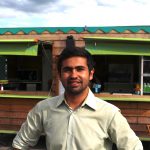In India, a Fabrikarium to hack disability
Published 20 February 2018 by Carine Claude
From February 10-14, we were at Maker’s Asylum in Mumbai for a Franco-Indian hackathon with the association My Human Kit from Rennes, Brittany. Or the art of dealing with disability and frugal innovation in a relaxed and friendly atmosphere.
Mumbai, special envoy (text and photos)
A wheelchair that takes off, cans of Red Bull transformed into Braille, or even a hand prosthesis in mosquito swatter style… On the last day of the STEAM Fabrikarium, during the Franco-Indian hackathon around disability organized from February 10-14 in Mumbai by the makerspace Maker’s Asylum and My Human Kit, a French association from Rennes, Brittany, the 65 participants were in demo mode to present their low-cost and functional prototypes meant to facilitate disabled people’s everyday life. With a touch of fun. Because here, any condescension is forbidden and the teams are mixed, able-bodied and disabled together. At Maker’s Asylum, we in fact prefer to talk about “differently abled” people to avoid discriminatory temptations. “We are here to break rules,” swears Allan Rodrigues, CEO of Maker’s Asylum, in conclusion of the STEAM Fabrikarium (event of which Makery is a partner).
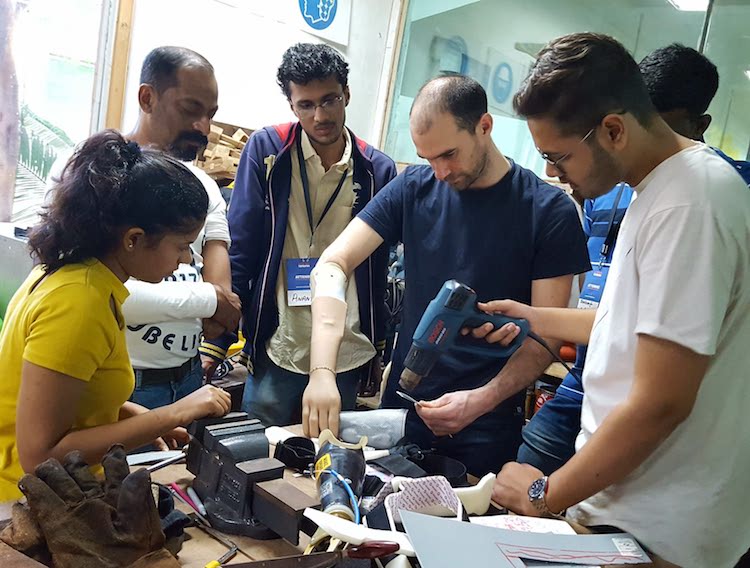
Hive of activity under fans
In all, ten or so teams composed of engineers, makers, coders, designers and disabled persons supervised by French and Indian mentors were spread around five projects: hand prostheses (Bionico and Shiva), wheelchairs, even flying chairs, Braille printing…
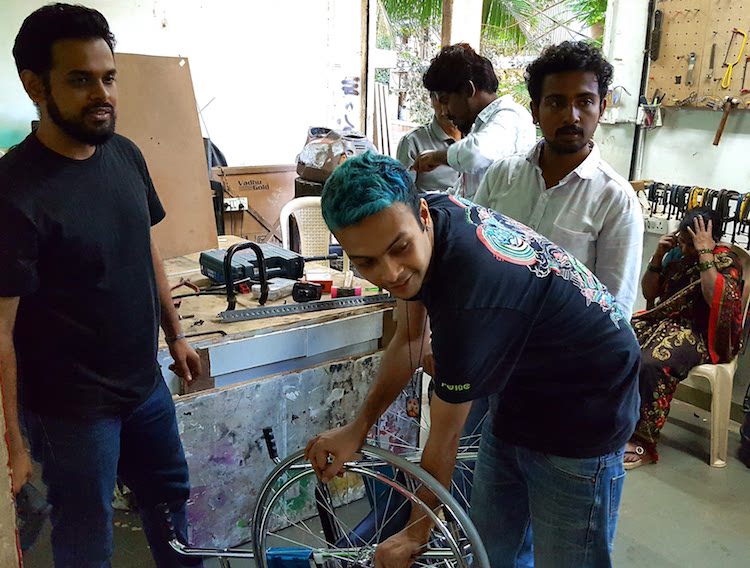
“Look, they worked until dawn again!” enthusiastically says Hugues Aubin, one of the mentors of the event, showing his team’s messages sent in the middle of the night. Co-founder of the LabFab in Rennes, he coordinates My Human Kit, an association created to support Nicolas Huchet’s open source bionic hand project.
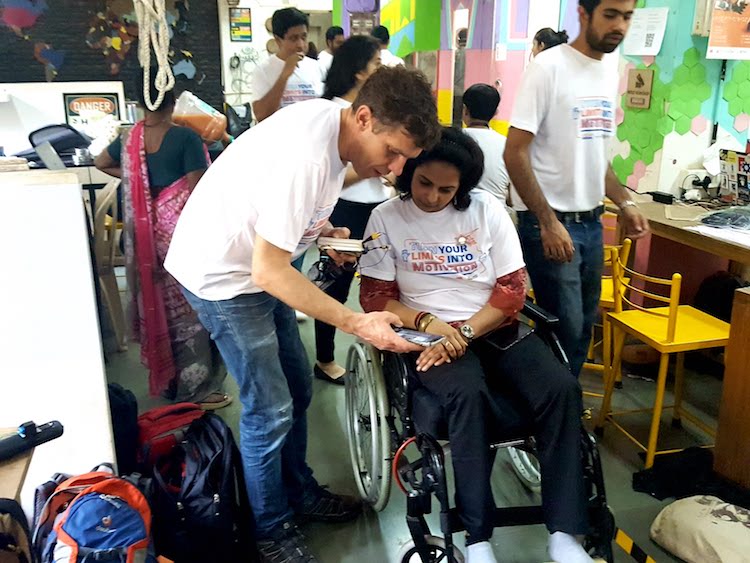
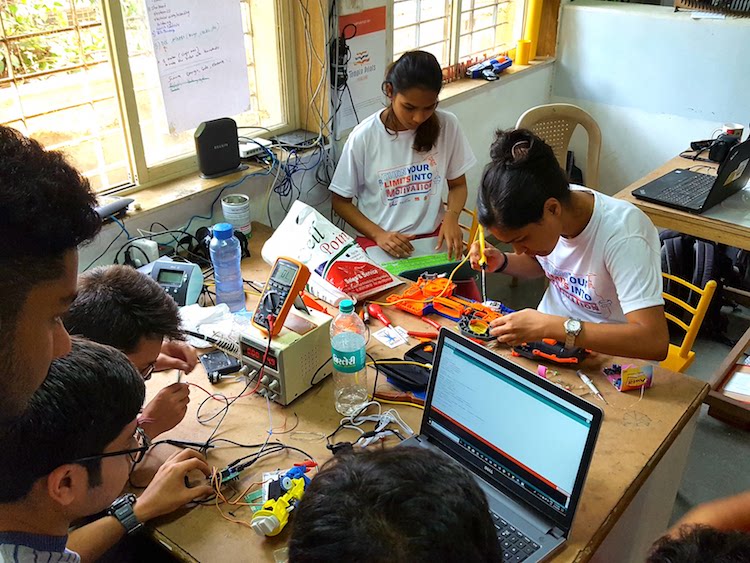
For Hugues Aubin, the five-day techno-creative sprint and as many short nights were hardly enough to develop their prototype: producing a Braille Rap, a modified 3D printer to write in Braille. It was finally a digital milling machine that was hacked with a reversed drill bit serving as an embosser to rapidly carve at low cost the signs for the visually impaired in metal from used cans.

“They are incredible, ideas come from all sides. The most complicated is to keep them focused,” he notes. In the middle of the Indian winter at 35°C, the heat doesn’t help, and the makerspace looks like a hive of activity under fans. In order to test the DIY Braille printing quality, he can count on Rahul, a blind Indian lawyer. In fact, Hugues Aubin didn’t hesitate to make Rahul get his hands dirty by making him manipulate different parts of the CNC.
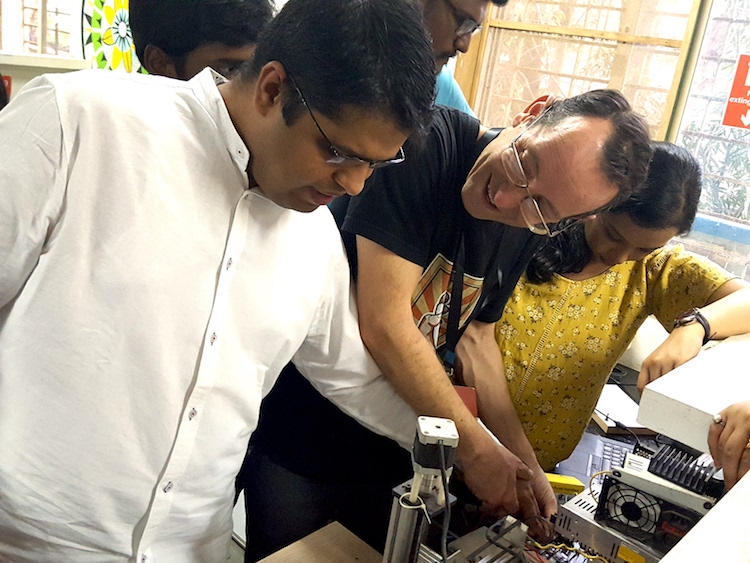
Crossroads of meetings
“This is only a stage. We must absolutely keep track of all the trails imagined here to develop them later.” The whole idea of the STEAM Fabrikarium is there: not to be content with a one-shot and develop the cooperation between Indian and French makers, disabled or not, in the long term.
The project originated as soon as 2015 through chance encounters between Nicolas Huchet, Vaibhav Chhabra, founder of the Maker’s Asylum and Sandrine Maximilien, researcher at Insa (National institute for applied sciences) in Lyon and attaché with the French embassy in India in charge of sciences and techniques. According to them, building interdisciplinary EdTech projects between the two countries is vital. Rapidly, institutions, partners and academic world come into the loop, like the Center for Research and Interdisciplinarity (CRI) and the Mines-Telecom Institute.
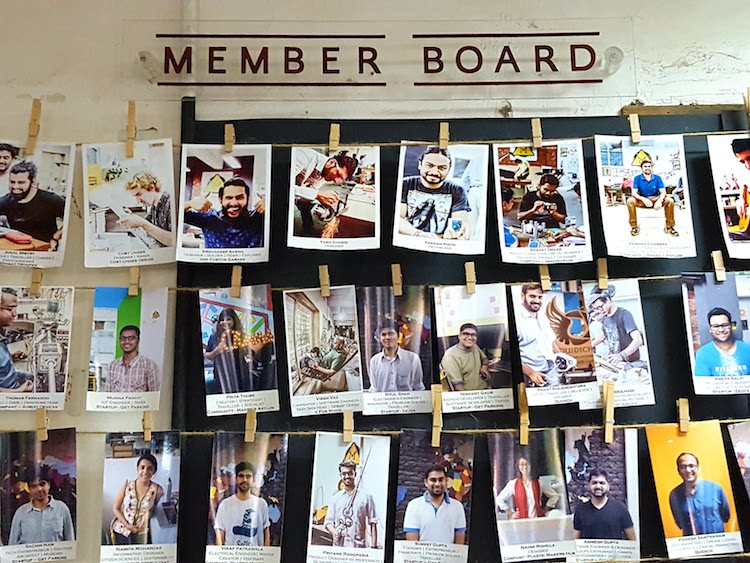
First step: the launch of the STEAM School in 2016 (for Science, Technology, Engineering, Art and Math), an ephemeral school of making organized at Maker’s Asylum around themes such as health or environment, in accordance with the social innovation objectives set by the United Nations. The same year, My Human Kit tests V1 of its Fabrikarium special disability at Airbus. The merging of these two concepts will result in this first edition of STEAM Fabrikarium, placed under the auspices of the scientific and cultural cooperation program Bonjour India driven by the French Institute and the French embassy in India.
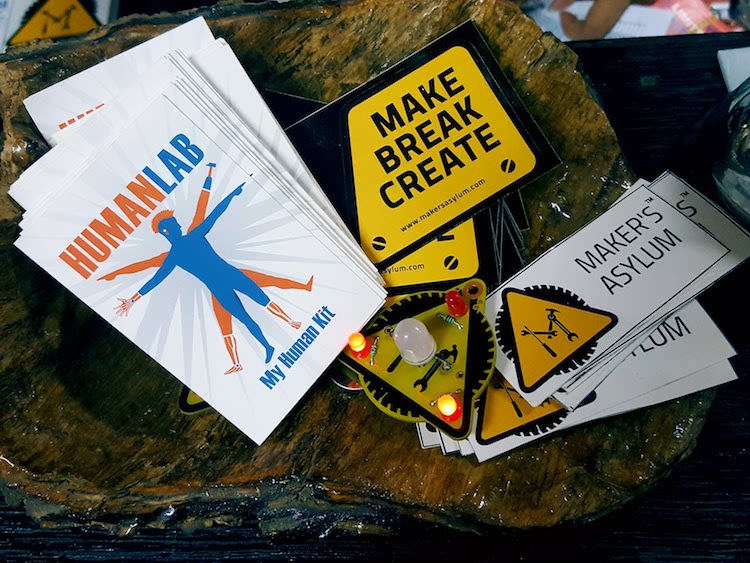
An Indian plague
The interest from French and Indian institutions is in no way inconsequential, since the challenge is considerable. Conflict areas, rurality, castes… On the scale of the subcontinent, disability is a true plague, both from the point of view of exclusion as well as access to care of individuals. “The last census in 2011 totals the number of disabled people at 2.2% in India, but it is no doubt much more”, assures Neha Saigal, analyst from the PMKVY program at the National Skill Development Cooperation (NSDC) in Delhi and former regional coordinator of Handicap International who came as an “active observer” to Fabrikarium. As soon as 2009, a report from the World bank pointed out that 5 to 8% of the Indian population had disabilities, that is to say 55 to 90 million people…
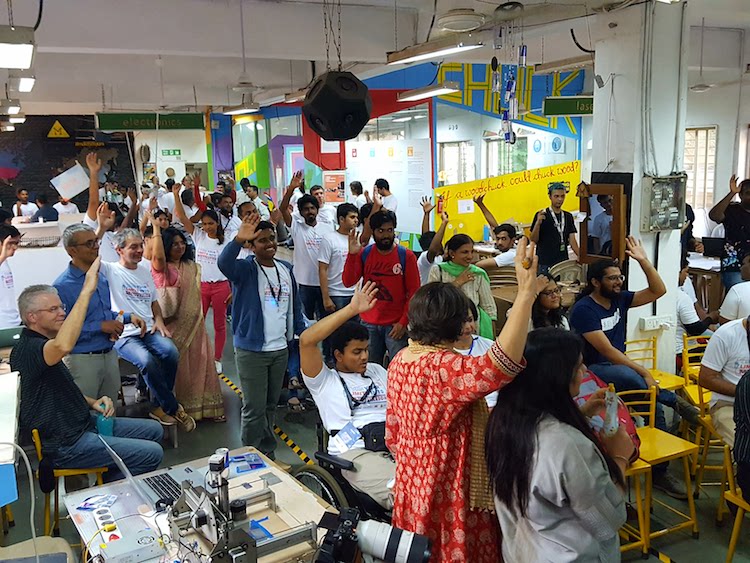
Spin-off of Human Labs in the pipeline
Concretely, some Human Labs could see the light of day in the near future in India, following the model of the one created in Rennes by My Human Kit. “We still don’t have a strict definition of what the Human Labs will be in India. A label? A network? Explains Vaibhav Chhabra. In any case, they will be accessible places for and by disabled people.”
“All different, but all together!”
Nicolas Huchet, My Human Kit
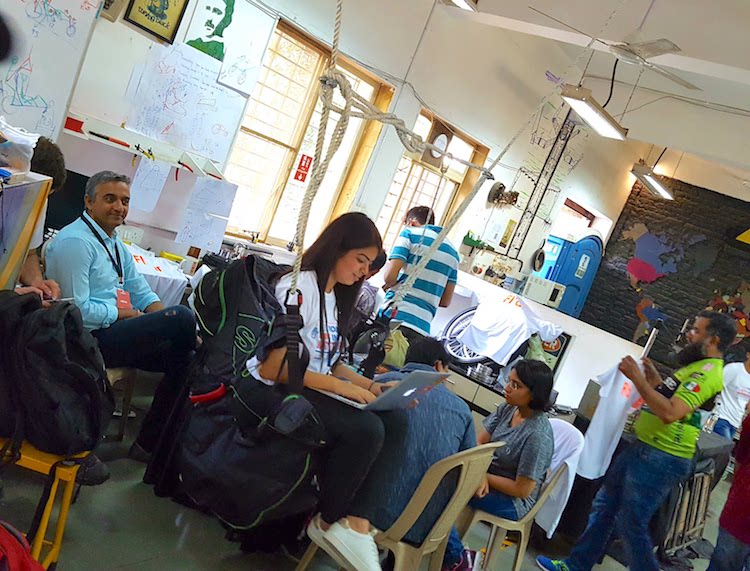
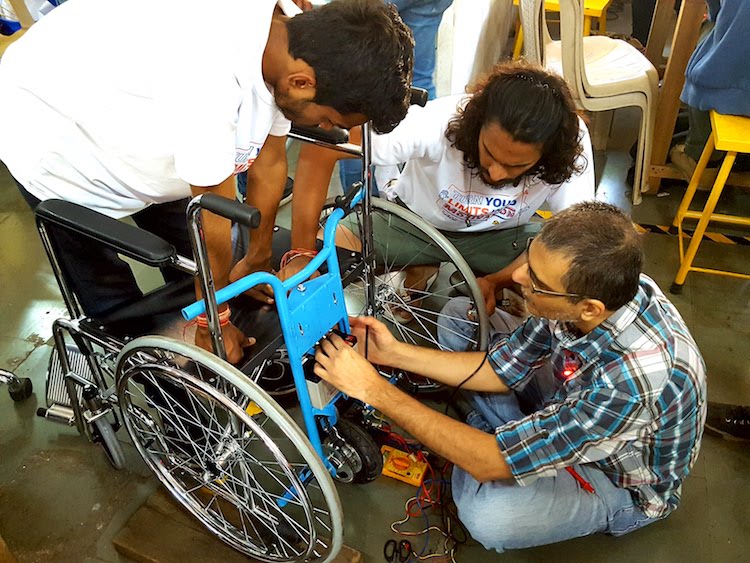
The day after the STEAM Fabrikarium, the Flying Wheelchair, adapted to go paragliding, was tested on a take-off site in the south of Mumbai. “When we return to France, we will work on the canopy again and go and see the French federation for Hand-gliding. The objective would be to produce the chassis in India, and the fabric part in France,” says John Lejeune, fabmanager of LabFab in Rennes and member of My Human Kit.
As for the e-Trotti prototype, a low-cost electric wheelchair, it could in the future be produced thanks to salvage motors from electrically assisted bicycles from the city of Rennes, explains Yohann Véron, another buddy from My Human Kit. And why not organize a Fabrikarium in France to welcome Indian makers.
A post shared by Makery France (@makeryfr) on
Discover our portraits of the STEAM Fabrikarium participants
The prototypes assembled during the STEAM Fabrikarium will continue to be documented on Hackaday

